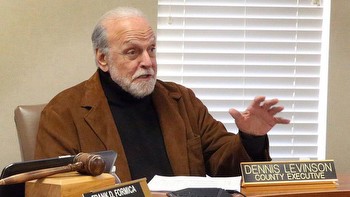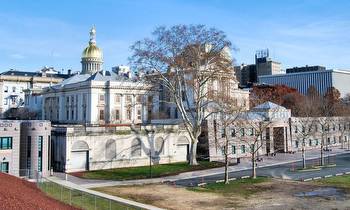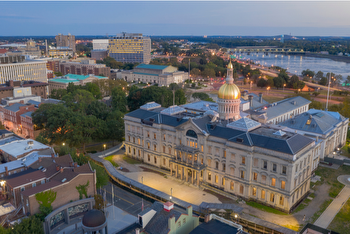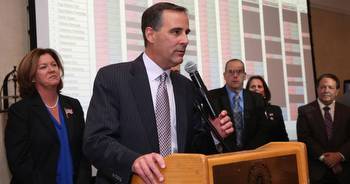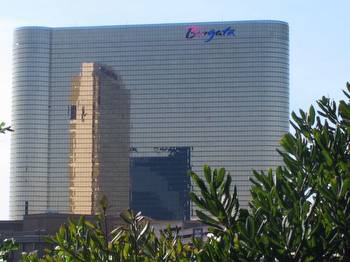Our view: Shifts in NJ gaming bring PILOT revisions
New Jersey is revising again how much tax casinos pay and how governments divide up the revenue. That is contentious for the competing government entities, and frustrating for all stakeholders including the public because much of the change is done with uncertainty and secrecy.
After a couple of weeks of posturing and politicking about who will get how much in the years ahead, and therefore how much Atlantic City’s casino industry will pay, the legislation has advanced sufficiently in the state Senate to clarify some basics about the impending revision.
The state Office of Legislative Services describes the change thus: “In brief, we expect the bill will reduce the PILOT payment by $55 million in 2022, and probably between $30 million and $65 million in subsequent years through 2026. New mandatory payments of $5 million per year in 2024-2026 will partly offset this.”
The analysis also mentions an unknown: “There may also be some redistribution of IAT revenue, if those revenues exceed the CRDA and city’s debt service requirements.”
So casinos will make significantly smaller payments in lieu of taxes for at least several years.
Stephen Sweeney, the lame duck Senate president who has assumed primary sponsorship of the PILOT revision with its political liability, said casinos must pay less or as many as four of them might close. A source in Gov. Murphy’s administration puts the number of casinos at risk at two. Assemblyman-elect Don Guardian said he only knows of one.
Still, the prospect of South Jersey residents losing jobs in casino closings was enough to sway many in favor of the revision bill, or at least to back off their opposition. The region has yet to recover from the economic damage of the pandemic and reactions to it.
Major additional unknowns include which casino revenue streams will increase in the years ahead and by how much. These now include sports betting and internet gambling, currently the fastest growing segments.
These new forms of legal gambling weren’t around in 2017 when the PILOT scheme replaced ordinary property taxes for what was expected to be a 10-year run. They’re a big part of why elected and casino officials see a need to revise the PILOT agreement.
Other developments also are factors in reworking the PILOT.
Since it stabilized Atlantic City’s finances, the state has put substantial money and effort into a solid plan to broadly restore the city -- its economy, local government, even its quality of life.
That followed a failed attempt to expand casino gambling to North Jersey, which probably will be renewed as New York City develops three full-service casinos.
The pandemic interfered with the state’s revitalization of Atlantic City and undermined its casino industry. That damage hasn’t been undone and while society has transitioned toward living fully with COVID-19, it’s not there yet.
State government and the casino industry from the beginning have had the same goal of maximizing and protecting their revenue from Atlantic City gambling halls. Working together they have kept New Jersey’s casinos competitive with those that have arisen in nearby states. We suspect much of their discussion toward that end has been private and will remain so -- for business, political and other reasons. Regarding the PILOT revision, that means most lawmakers and the public won’t see documentation of the need for some casinos to pay less tax.
Divvying up government revenue from casinos always will be a political contest. The Office of Legislative Services says the bill “requires the county and the school district to receive the same PILOT allocations in calendar year 2022 as they received in … 2021,” which means “the city will bear the largest revenue loss under the new PILOT formula.” OLS nonetheless estimates the county in 2022 would get $3.3 million less ($17.5 million) and the school district $10 million less ($45.8 million). The city, though, would receive $41.8 million less ($46.7 million), which is unlikely to be wholly offset by a new $5 million annual payment and other considerations, according to the OLS.
Atlantic County already is objecting to the course the revision is taking and is bringing political and likely legal pressure to defend its PILOT revenue. After the original legislation, the county won a court order in favor of its promised 13.5% share and may build on that case now.
The people and businesses of the Atlantic City region also have stakes in the health of its dominant casino gaming industry and the public revenue generated by it, and they can only expect and hope that the reworked PILOT balances both. With ongoing and unpredictable changes to society and the gaming industry, don’t be surprised if this revision sticks for only a few years. And they should be thankful for every year that so much of legal gaming in New Jersey is centered in Atlantic City, which makes fighting over the PILOT possible.








